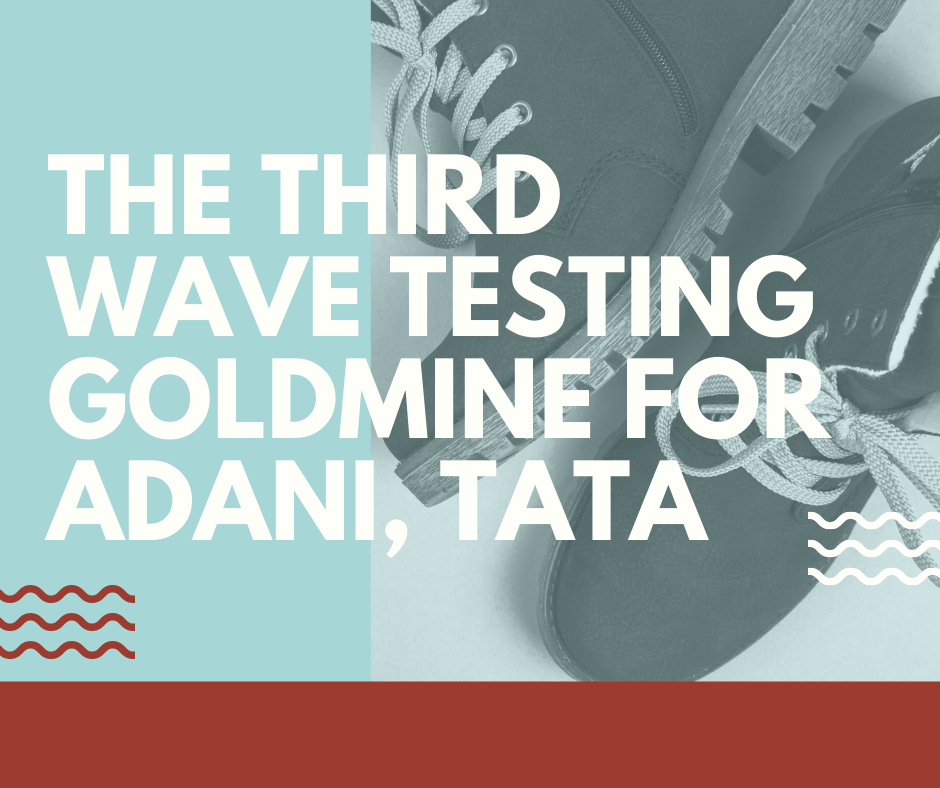It’s not just those without prior diagnostic experience leaping into the space. The Tata Group, which has been in the health space since 2015, founded Tata Medical and Diagnostics (Tata MD) in 2020. The company see on the Feluda paper strip test for rapid results, but it turned out to be unviable due to the high import prices of the raw material, according to government officials aware of the matter. The company is taking a second crack at diagnostics with RT-PCR kit Omisure, which it claims detects the Omicron variant with fair accuracy.
The third wave testing goldmine for Adani, Tata
With Omicron spreading faster than earlier variants, home testing RAT kits have also become popular. “During the second wave, we inched towards testing a million people a day. Since January, the target has doubled to two million,” said Lalith Kishore, chief operating officer (COO) of the government-run Centre for Cellular and Molecular Platforms (C-CAMP).

Companies such as Mylab Discovery Solutions, Meril Diagnostics, and the US-based Abbott Laboratories are seeing a massive spurt in RAT kit sales, thanks to their first-mover advantage—the test kits were launched in early 2021.
According to Balram Bhargava, director-general of the Indian Council of Medical Research (ICMR), the medical body registered the usage of only 3,000 home testing kits in the entirety of 2021. However, in January 2022 alone, it noted the usage of 200,000 test kits. Mylab founder Hasmukh Rawal said that his company sold 500,000 self-testing kits in Mumbai alone in the first week of January.
How about the Health?
Once it became clear that the third wave was bypassing the standard RT-PCR tests, corporates and big, established conglomerates rushed in to make a quick buck. But they haven’t been able to execute their plans as hoped—Tata’s Omisure, for instance, has already been panned by diagnostic labs for failing internal validation checks.
For the RAT kits, ICMR insisted that every result be integrated at the backend with its database. “It took nearly two months for all approvals to fall through,” a senior executive at Switzerland-based Roche Diagnostics told us. Roche launched its home testing kits in India on 26 January. Approvals, generally, are dependent on ICMR’s discretion, said a senior executive from a leading lab chain in the country.
The executive and others spoke to requested anonymity as they are not authorized to speak with the media. The reports from diagnostics setups at airports are also concerning. Long wait times, near-monopolies on airport testing, high prices, and touts promising negative results have all made the experience a headache for travelers. Dubai-bound Thyagarajan, for instance, was promised results within minutes, but the on-ground reality was starkly different.
Making hay of it.
Diagnostic companies clocked big numbers from Covid testing in the second wave last year. Neuberg Diagnostics, a pan-India lab chain, projected its estimated revenue for the year ended March 2021 at Rs 1,000 crore (US$134 million), of which it attributes as much as Rs 400 crore (US$54 million) to Covid testing.
“These earnings are mostly from six months ago, in the second wave. In the third wave, the lab companies are making only 30-40% of that business with traditional RT-PCR tests,” says A Ganesan, the company’s group vice-chairman.